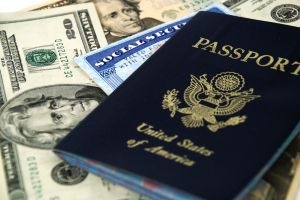 Last month, I wrote about the 183-day rule, a big tax myth and that it’s definitely not a synonym of tax-free income. However, I did not have enough time to fully explain the link between the 183-day rule and social security contributions. What is that link? In short, there is none.
Last month, I wrote about the 183-day rule, a big tax myth and that it’s definitely not a synonym of tax-free income. However, I did not have enough time to fully explain the link between the 183-day rule and social security contributions. What is that link? In short, there is none.
For some unexplained reason, when considering international assignments, workers, agencies and clients may consider the tax implications of the engagement, but a lot of the time, social security contributions are just forgotten or simply ignored, as if they did not have to be considered as part of the picture. That though, I can tell you now, is a big mistake and the risks are many for the parties involved.
So how does it work when it comes to social security contributions? It may be safe to start with the general rule that, the liability travels with the contractor – or as someone I worked with used to say: ‘social security liability is where the contractor’s backside is’. And that is from day one – not after 183-days or any other period!
PREMIUM CONTENT: Spain market snapshot
Now, obviously, there may be a number of factors that may determine otherwise, for example:
- The worker’s home country/country of residence;
- Whether the worker is engaged as an employee or self-employed;
- The location of the worker’s employer;
- The existence of social security agreements (sometimes known as Double Contribution Conventions/Bilateral Social Security Agreements/Totalization Agreements) between the worker’s home country/country of residence and the country of work; etc.
In order to make sure the rules are being followed and there is no breach of compliance, it may be worth speaking to an expert. The bottom line, though, is just like income tax, social security contributions should be paid somewhere!
For many, the idea of paying social security in a country where they’ll be living and working on a temporary basis only sounds a complete waste of money as they can’t see any benefits in doing so – and in some cases, that is probably true. But unless there is something in the legislation that exempts the worker from paying SS contributions in the country where they are working or allows them to continue to pay these contributions back home, simply choosing to ignore the liability is not the way to go. Many a company (especially end users/end clients) have penalized when their contractors/contingent workers have not paid their social security in the country of work; often the result has been that of a co-employment issue and contributions (for both workers = classed then as employees and end users = classed as the employer) being backdated and penalties and fines applied for late payment. It’s not a pretty picture and one I’m sure you’d prefer not to see any of your contractors, staffing companies, MSP or end clients associated with.
So, if you started reading this post asking, “Are we talking about paying social security whilst contracting abroad – really?” then I’m afraid the answer has to be: “Yes, definitely, and you should check the rules and make sure payments are made accordingly in the right country!”








